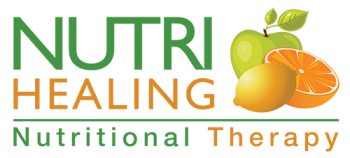How healthy is your digestive system? - May 2008
How Healthy is your digestive system?
Digestion
Many people consider many digestive problems the norm with symptoms ranging from bloating, flatulence, reflux, cramp, diarrhea and constipation. Impaired digestion & absorption can be a major contributor to many health problems and nutritional intervention could well be the answer to alleviate your symptoms and enable you to feel healthier, improve your energy; allowing you to get on with your life.
For the digestive system to function well a number of important factors need to be present in
Order for your foods and nutrients to be properly utilised by the body.
Your digestive tract is your 'inside skin' and represent a long tube measuring 10 meters in length; the billion of cells lining the tube are a protective barrier and are renewed every four days. The role of the digestive tract is to process our food, extracting and absorbing the vital nutrients the body needs and eliminating the rest. If any of these factors are missing indefinitely, then our digestive tract (gut) is compromised leading to not only the symptoms that have been mentioned, but also other non-related symptoms. Eventually even more serious conditions as Irritable bowel syndrome, Colitis, or Chronic fatigue.
Some factors that impair digestion:
- HCL (hydrocholoric acid) stomach acid
- Digestive enzymes
- Imbalance in good bacteria in the gut
- Deficient in nutrients especially vitamin B's - needed to produce digestive enzymes
- Congestion or disease of the gallbladder, liver, pancreas
- Stress leading to Thyroid or Adrenal overload
Other Symptoms of poor digestion:
- Dry Skin
- Weight loss
- Fatique
- Muscle cramps
- PMS
- Mental problems or poor concentration
How can we improve it?
Firstly if your symptoms persist visit your doctor to carry out any tests to eliminate any serious conditions. If all the tests are negative further testing for parasites, candida overgrowth, bacterial imbalance, mal-absorption or mal-digestion can be offered. This will give you a complete picture of what is happening inside your body.
Also check for any wheat or dairy allergies and
it is also advisable to check for stomach ulcers and thyroid function. All these tests are available at www.iwdl.net. Next we can work on the factors that impair digestion
Low HCL
As we age the amount of acid produced by our stomachs diminishes and is also sensitive to high levels of long-term stress. Stomach acid is necessary for several important functions:
- Absorption of essential nutrients such as iron & calcium
- Prevents bacterial infections
- Essential for ensuring the stomach environment is the right acidity for protein absorption
- Stimulates pancreatic enzymes required for breakdown of fats & proteins
Try adding lemon to hot water 1/2 hour before eating to stimulate digestion OR HCL supplements are available which will help stimulate and regulate the stomach acid.
Digestive Enzymes
Some people have a lack of these enzymes and therefore the food they eat is not properly broken down leading to the symptoms mentioned above.
- Amylase - digests Carbohydrates
- Protase - digests Protein
- Lipase - digests Fats
- Lactase - digests Milk sugars
- Cellulase - digests Fibre
By taking a plant enzyme supplement the enzymes in the digestive tract can be aided in carrying out their function more efficiently from the acidity of the stomach, all the way through to the alkalinity of the small intestine. Ensuring optimal digestion of all the foods.
Good Gut bacteria
Two very important bacteria 'Lactobacillus acidophilus & Bifidobacterium bifidum' should be present in large amounts in the gut; these are called the 'Good Guys'.
The role of the good guys is to increase acidity, providing an effective blocking mechanism against invaders such as pathogens, candida, viruses; the 'Bad Guys'.
Lactobacillus colonisizes the small intestines and Bifidobacterium inhabits the vagina and large intestines, where it produces significant amounts of Vitamin B for use in the body.
Detox
Regular detox your body twice a year to relieve the stress on the liver, gall bladder, gut and eliminate the toxins that build up and are stored in the body: email me for a detox programme alma@nutrihealing.co.uk
What changes can we make to our diets?
How can we improve our diets to alleviate the symptoms and improve the function of the digestive system?
It helps to remove or avoid any specific foods which may be irritating the gut and causing an allergic response such as:
- Wheat
- Dairy
- Chocolate
- Sugar
- Coffee/Tea
- Food additives
- Alcohol
Diet & Lifestyle
- Avoid skipping meals especially breakfast
- Avoid sugar and foods containing sugars
- Avoid refined carbohydrates (cakes, biscuits, white bread, any refined foods) and eat more complex carbohydrates (vegetables, fruit, wholegrain, pulses, nuts, seeds)
- Avoid Tea, Coffee, fizzy drinks, alcohol and replace with herbal teas, fresh juices
- Increase fruits & vegetables
- Have small main meals and healthy snacks
- Drink plenty of water 8 glasses a day - filtered or bottled
- Increase fibrous whole foods and wholegrains
- Take regular exercise
- Work on decreasing your stress
To help improve sluggish bowels (constipation) taking a soluble fibre supplement such as psyllium husk, apple pectin, or gingerdophilus by Biocare may help people who find constipation a problem. Also eating plenty of fruit & vegetables will increase dietary fibre.
Tip - Peppermint or Ginger Tea is great for digestion.
